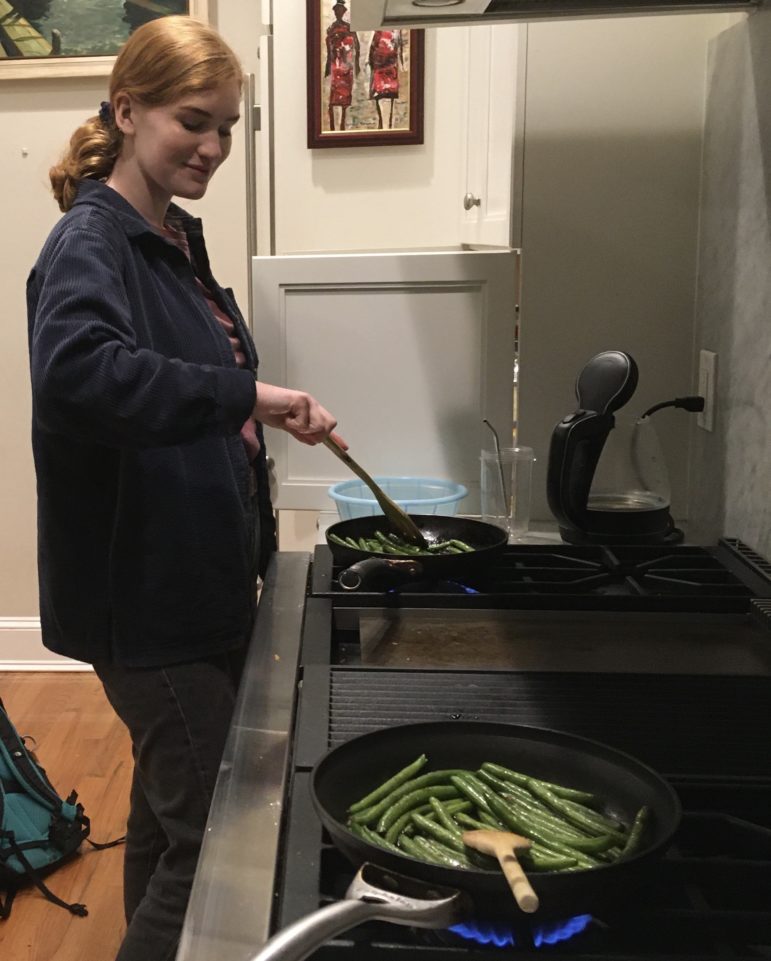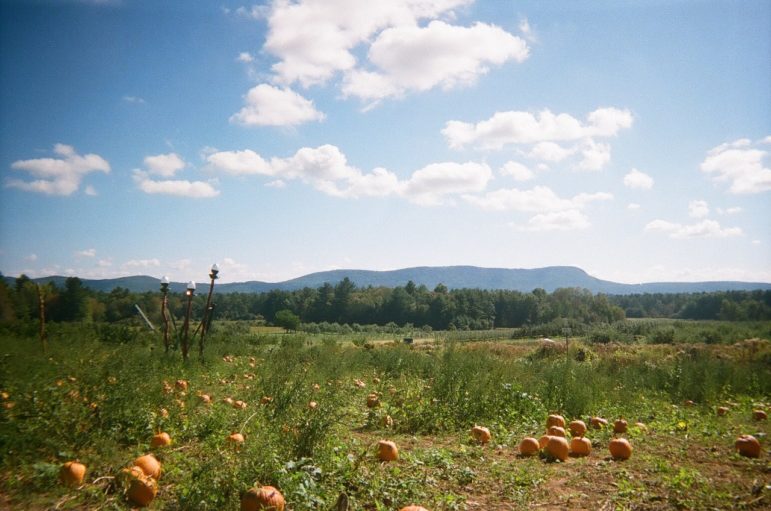Written by Alice Bell

I’ve always been drawn to the weird, kinda-niche parts of fighting climate change; divestment, the ins and outs of building energy codes, and so on. They’re deeply necessary, but feel sneaky because they can be very complex and don’t always get lots of airtime – they’re less obvious than renewable energy, bicycles, or LED bulbs.
And I’ve been looking for these hidden bits my whole life. When I was in elementary school, I was a “Recycling Ranger” for two years, staying after school with other students to collect and sort the recycling from all the classrooms in the building to ensure the school kept up the program – my parents still ask me if certain things can be recycled or not. They did give us little hats with the recycling symbol on them, but it still wasn’t glamorous – it just needed doing and it was small enough for a nine-year-old to help with.
From Recycling to Divesting
I heard about the divestment movement as a first-year at Smith College in 2017. Divestment at the college level is a topic and a strategy full of minute contradictions, multi-school organizing meetings, bureaucratic wrangling, and incredibly obscure jargon – so, of course it interested me. To divest from something refers to the choice to remove one’s investments from fossil fuels, and can be interpreted narrowly or broadly – it can also apply to other issues, such as private prisons and gun manufacturers.

My role for two years has been as a student representative to the ACIR, the advisory body for the investing committee of the board of trustees. The gulf between the students and the trustees is comically large, and also not – they are tasked with keeping Smith endowed for decades to come, while we are trying to graduate with a livable planet. Smith has a very large endowment, and as an historically women’s college, likes to think of itself as somewhat revolutionary – educating women in the 1890s and 1900s certainly went against the grain. But investing in fossil fuels is the antithesis of “being revolutionary” – in fact, it goes directly against everything we need to be doing about climate change.
While working on divestment, my fellow students and I had to get really smart about economics, endowment structures, and institutional investing really quickly, and it was stressful and hair-raising. Spending all those hours online reading articles and jumping through bureaucratic hoops to get the board to even consider our ask took teamwork and a lot of dedication, from generations of students — but it worked. The divestment movement at Smith was twelve years old when we won a commitment from the board in October 2019 to divest the school’s endowment of fossil fuels.
COVID Summer

Jules, one of my best friends, and I had big plans for summer 2020. We met during an eight-month political science intensive in DC last year, and we were planning to live in DC again, together; she would continue her public defense work, and I would continue my work on climate change. We would compost, bike, read, watch bad movies, and get to know this city that I grew up in and that she was transplanted to. Make no mistake, we were blindingly privileged to be able to have such plans, in part because Smith has funding for unpaid internships.
But then the pandemic hit and her position was canceled and other internships became very thin on the ground. And out of this came my internship with CCAN, an organization that I’d been hearing about since childhood, as a communications intern, allowing me to use my love of writing and art in service of environmental activism.
Behind the Scenes at CCAN
Every organization has a personality and an environment behind-the-scenes. Before this summer, I had spent a lot of time doing research and working on federal environmental policy. The problems there are connected but incredibly different, and the approaches are consequently different.
I’m the communications intern, and while I love writing (even final papers), I had never done the kind of serious social media work that CCAN has taught me. Communication is a central part of the climate fight, but so is the minutiae of social media; understanding what kinds of tweets do and don’t work; how to write an event invite that engages people; refining op-eds; preparing live tweets for protests and rallies; creating and tweaking graphics for every event. Without devoted attention paid to these kinds of issues, a crucial link is lost.
Despite working out of my parents house, never once seeing the office, and connecting with others at CCAN primarily over Slack and in Zoom happy hours, I’ve been able to build new relationships and contribute to this immense problem in my own small way. CCAN works in DC, Maryland, and Virginia, the DMV region I love so much and have been so lucky to grow up in. But this work also reflects the need to stay small; not everything can be addressed at the federal level, and we need local and regional work to really ensure communities are being adequately supported, and unique problems are being properly addressed.
Sitting in on weekly team meetings, I’ve been able to see the tiniest hint of the work that goes into each campaign, each ask, each article published, and event hosted. Each victory, from passing the VCEA to stopping the ACP and whatever comes next, is the product of huge behind-the-scenes work and specific knowledge gained from all those who have been in this fight longer. More even than that, working specifically on communications for the first time has taught me more about how to make those shadowy topics and distinctions, the niche and sneaky parts of climate change clearer and more accessible.
Staying Small
It can be hard to see the importance of “smaller” battles and these hidden dimensions can feel very removed from the bigger problem; I struggle against the frustration that we even have to fight on the small scale like this, when climate change should have been dealt with as the massive, urgent problem it is. After I got the news that Smith was divesting, I went back to my desk at work, struck by the incredible tension between this victory and the bigger, more stubborn needles that hadn’t moved.
But the small battles keep you in community. I’ve met some incredible friends working on divestment, and been able to see the impact of that victory in life on campus. I got to hang out with my friends and run in the halls while collecting the recycling, big stuff for an elementary schooler. We can’t all lead marches or speak to congressional committees, nor should we, but there are a million levels to work at and a million connections to climate in everything we do. And there are local battles going on everywhere, uncountable and ever-changing – it feels like being part of an army I may never see entirely, who’s power we can only guess at because it’s bigger than anything we’ve ever seen before.






